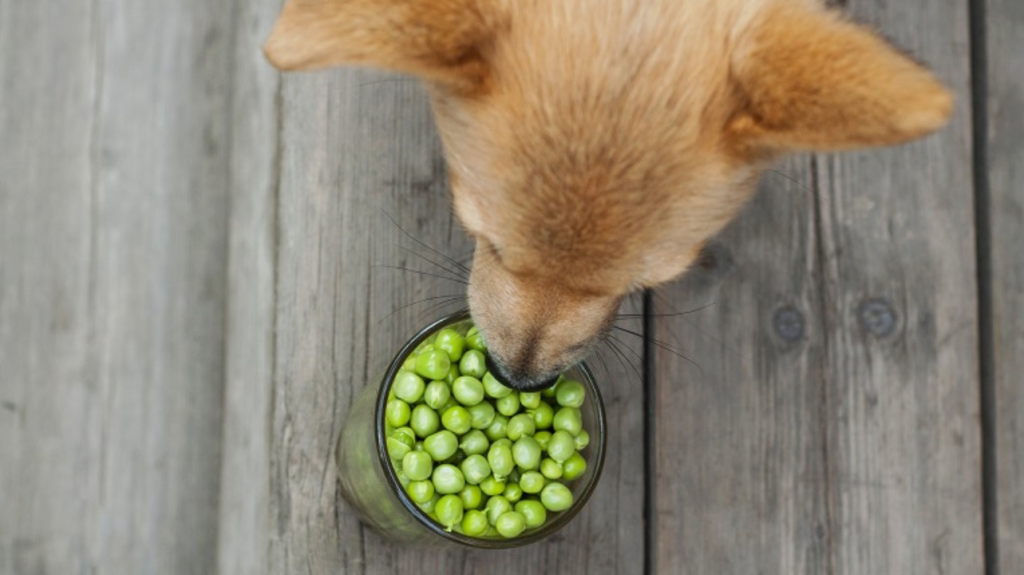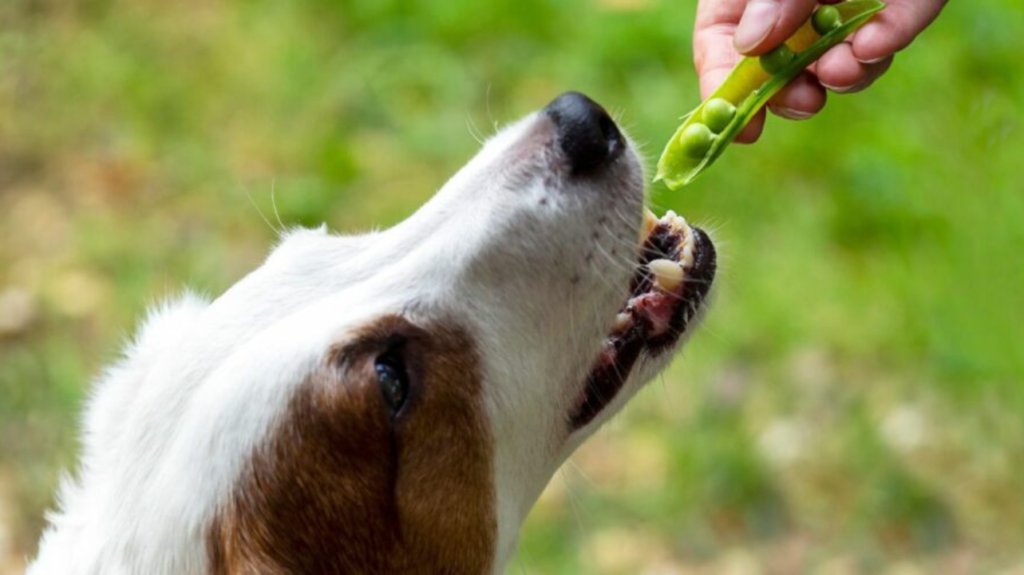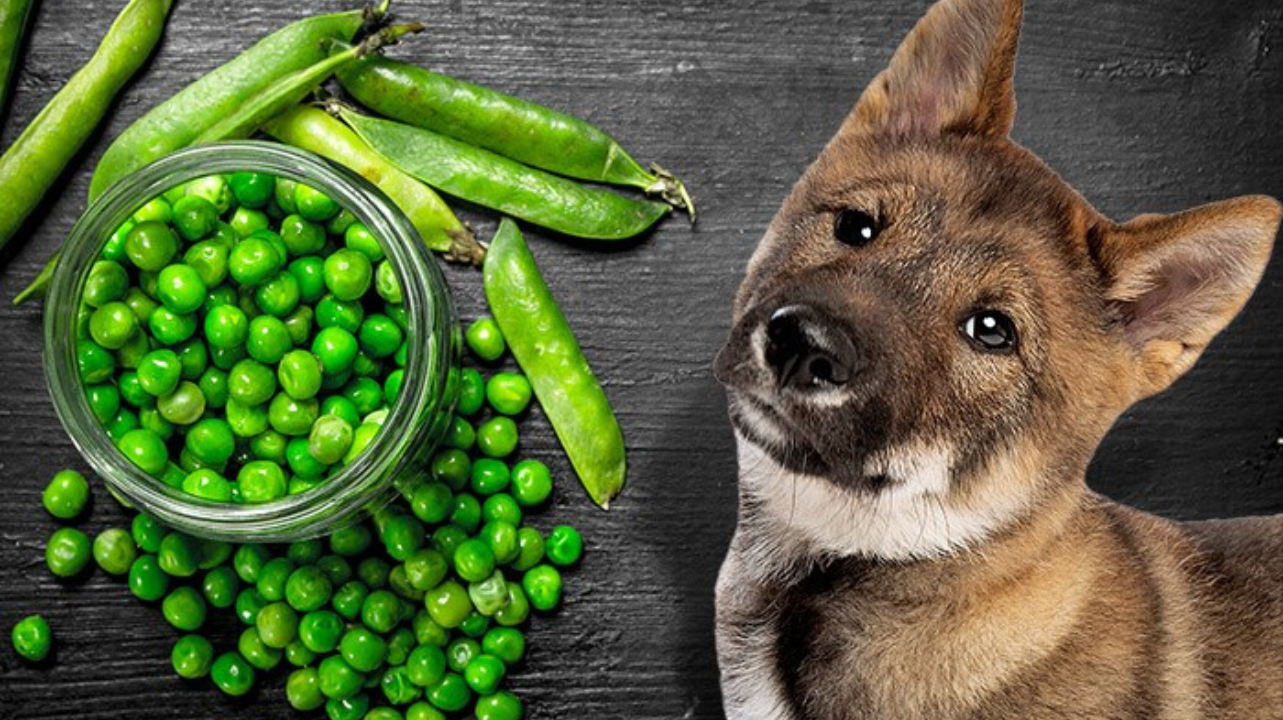Can Dogs Eat Peas? Advantages and Possible Hazards
Legumes, such as peas, are a wonderful source of vitamins, fiber, and protein. They are a healthy option for dogs because they are low in fat and calories. But before you give peas to your dog as a treat or meal, it’s crucial to be aware of the few possible concerns involved.
Advantages of Giving Dogs Peas to Eat
- Protein: An important component of dog health, peas are a rich supply of this macronutrient. Building and repairing muscles, tissues, and organs are aided by protein.
- Fiber: Another nutrient that is abundant in peas is fiber, which aids in regulating digestion and warding off constipation.
- Vitamins and minerals: Vitamin A, Vitamin K, Folate, and Potassium are among the vitamins and minerals that are abundant in peas. These minerals are critical to the general health of dogs.
- Low in calories and fat: Dogs who are overweight or obese can benefit from peas because they are low in calories and fat.
The Possible Dangers of Giving Dogs Peas to Eat

- upset stomach: Peas can occasionally upset a dog’s stomach, resulting in gas, diarrhea, and bloating. If the dog is not used to eating peas or if they are fed in big amounts, this is more likely to happen.
- Reaction caused by allergies: Dogs may have allergies to peas. An allergic reaction may cause swelling, hives, itching, and breathing difficulties. You should stop feeding your dog and speak with your veterinarian if you suspect that they may be allergic to peas.
- In rare instances, intestinal blockage in dogs might be brought on by peas. If the dog has a history of ingesting foreign objects or if the peas are whole, the likelihood of this happening increases. It’s critical to take your dog to the vet right away if you suspect they may have eaten a pea.
Before adding peas to your dog’s diet, make sure you are informed of any potential dangers. Peas can be a nutritious and healthful supplement. It is important to speak with your veterinarian if you are not sure if peas are safe for your dog.
Here are some more pointers for giving dogs peas:

- Start small: Gradually add peas to your dog’s food by starting with a tiny quantity and working your way up to a larger amount over time. This will lessen the possibility of experiencing stomach distress.
- Peas that have been prepared: Before giving peas to dogs, they should be cooked. They will be less likely to result in an intestinal blockage and easier to digest as a result.
- Pea pods: Try not to give dogs pea pods. The pods present a choking hazard and can be challenging to digest.
- As a treat: Peas should not be a staple of the diet; rather, they should be given as a rare treat. By doing this, weight gain and other health issues can be avoided.
- You can make sure that your dog consumes peas in moderation and in a safe manner by paying attention to these suggestions.
FAQ
Q1: Can dogs eat peas?
Yes, dogs can eat peas. They are a healthy source of protein, fiber, vitamins, and low in calories and fat, making them a suitable addition to their diet.
Q2: What are the benefits of feeding peas to dogs?
Feeding peas to dogs can provide benefits such as protein for muscle health, fiber for digestion, and essential vitamins and minerals like vitamin A, vitamin K, folate, and potassium.
Q3: Are there any potential risks in feeding peas to dogs?
Yes, there are potential risks, including gastrointestinal upset (bloating, gas, diarrhea), allergies in some dogs, and the rare risk of intestinal blockage, especially if the peas are whole or the dog has a history of swallowing foreign objects.
Q4: How should I introduce peas into my dog’s diet?
Start small and gradually introduce peas into your dog’s diet to reduce the risk of gastrointestinal upset. Cook the peas before feeding, avoid pea pods, and offer them as an occasional treat rather than a regular part of the diet.
Q5: What should I do if my dog shows signs of an allergic reaction to peas?
If your dog exhibits symptoms like itching, hives, swelling, or difficulty breathing after eating peas, stop feeding them immediately and consult your veterinarian for guidance.

